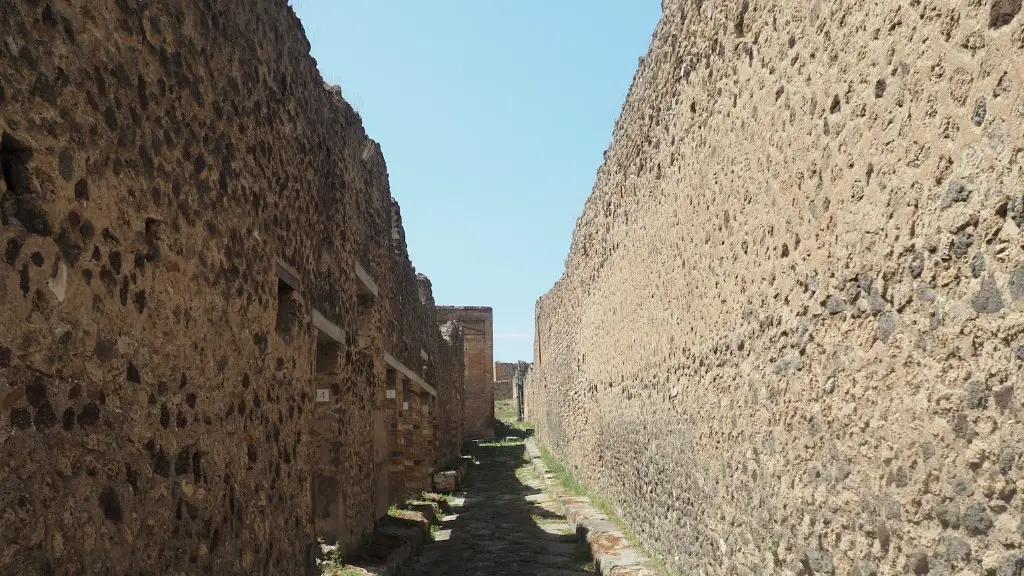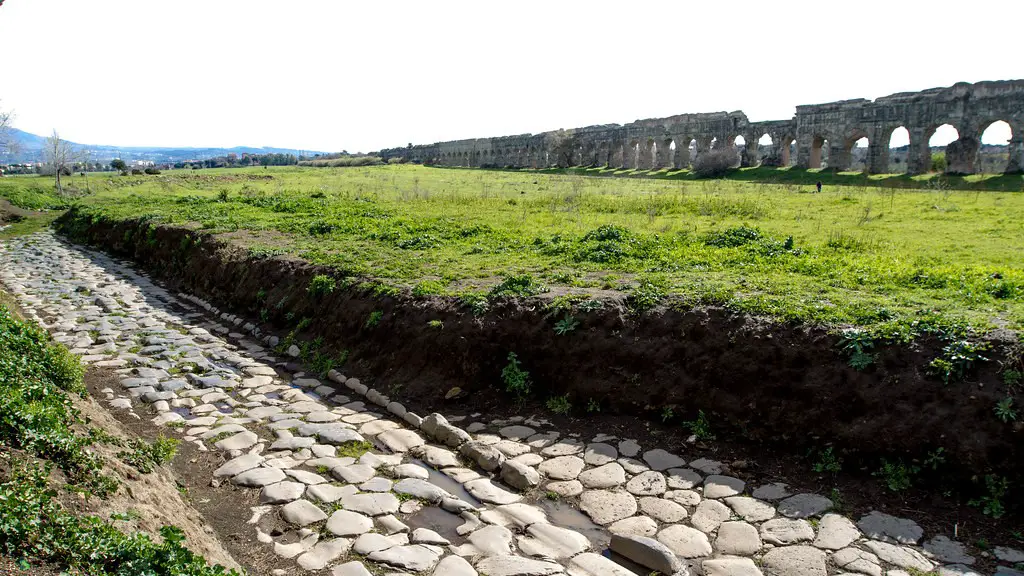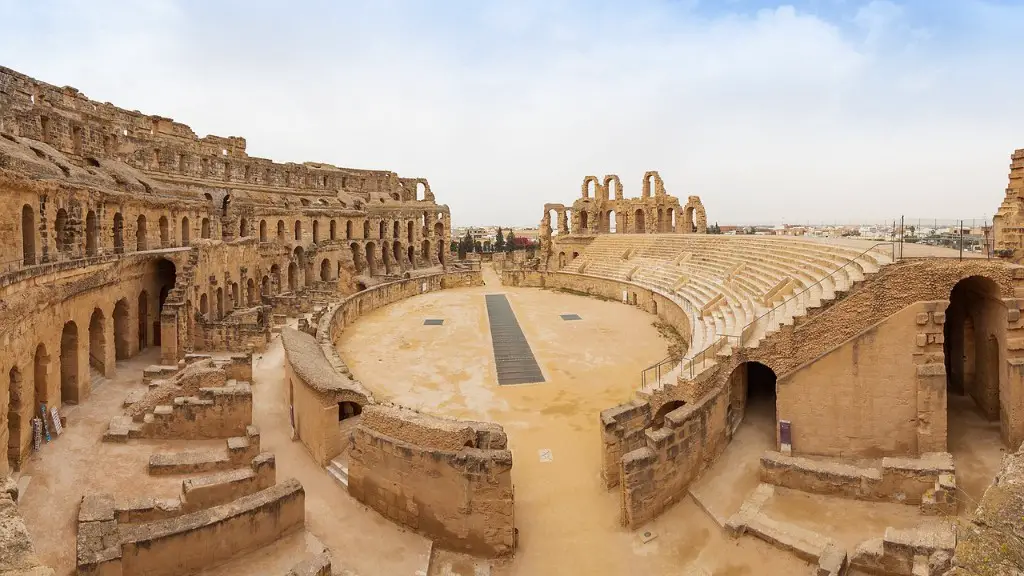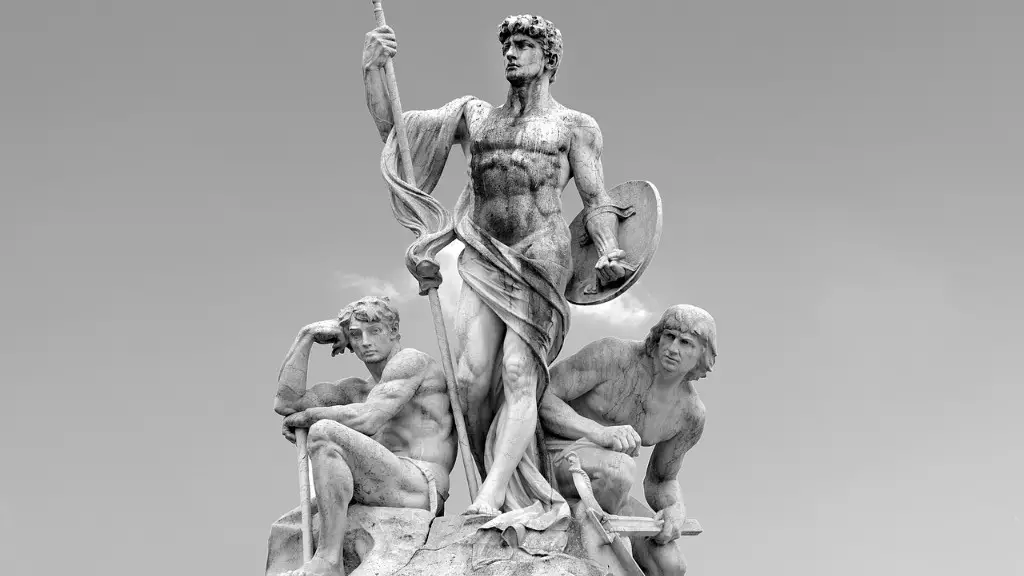The ancient Romans were a polytheistic people who believed in a pantheon of gods and goddesses. chief among them were Jupiter, Juno, and Minerva. They also believed in a host of lesser gods and goddesses, as well as in animism (the belief that everything, including inanimate objects, has a spirit). Roman religious beliefs were heavily influenced by the Greeks.
The ancient Romans believed in a pantheon of gods and goddesses who ruled over different areas of life. They believed that these gods and goddesses could help or hinder them in their endeavors, and that it was important to placate them with offerings and prayers.
What religion did Romans believe in before Christianity?
Prior to the arrival of Christianity, the Romans practiced a polytheistic religion, meaning that they worshipped multiple gods. Unlike many contemporary religions like Islam, Judaism, or Hinduism, the Roman religion had no official name. The Roman religion was a complex system of beliefs that included the worship of a pantheon of gods and goddesses, as well as a number of other practices and beliefs. The Roman religion was deeply intertwined with the daily life of the people, and it played a significant role in the political and social life of the state.
The Religio Romana was the major religion of the city in antiquity. The first gods held sacred by the Romans were Jupiter, the highest god, and Mars, the god of war and father of Rome’s twin founders, Romulus and Remus, according to tradition.
What did the Romans think of Jesus
The Romans saw Jesus as a troublemaker who got what he deserved. The Christians saw him as a martyr and believed that his execution made Judaea even more unstable. Pontius Pilate, the Roman governor of Judaea who ordered the crucifixion, was ordered home in disgrace.
Religious persecution was a very real thing in the Roman Empire. People who refused to honor the traditional gods with sacrifices and rituals could be persecuted, and even killed. This changed in 312 AD when the Roman emperor Constantine became a convert to Christianity. After that, religious persecution was no longer a matter of life and death.
What was Rome’s first religion?
From its earliest days, ancient Rome was polytheistic. This meant they believed in many gods and spirits, each with their own vital role to play. The Roman pantheon included gods and goddesses of sun and moon, of war and love, of wisdom and agriculture. Roman religion was not simply a matter of belief; it was also a set of practices and customs through which people related to the gods. These practices varied over time and from one social group to another, but they typically involved making offerings to the gods, either in the form of food or drink, or of objects such as coins or statues.
The Roman Empire was a polytheistic civilization, which meant that people recognized and worshiped multiple gods and goddess. One of the most prominent religions of the empire was Christianity. Christians believed in one God, which was a radical departure from the traditional Roman belief in multiple gods. This difference in religious beliefs led to a conflict between Rome and Christianity. Rome considered Christianity to be a form of atheism, while Christians considered Roman religion to be paganism. Ultimately, Roman polytheism came to an end when Christianity was adopted as the official religion of the empire.
How did the Romans worship their gods?
Roman religion was focused on the worship of the pantheon of gods through cultic practices. This meant that individuals had to adhere to specific rituals in order to receive approval from the gods, rather than behaving in a certain way. Each god required an image, usually in the form of a statue or relief, as well as an altar or temple where prayers and sacrifices could be offered.
Although the followers of Jesus were working hard to spread the message, there were still very few Christians in Rome. They were regarded with suspicion by many people because of their beliefs and because of some of the important Christian rituals which were often misunderstood (such as cannibalism and incest). This made the Christians an easy target for persecution.
Who ruled Rome when Jesus died
The Gospels are a major source of information about the life and teachings of Jesus of Nazareth. According to the Gospels, Jesus was executed during the reign of Tiberius, by the authority of Pontius Pilate, the Roman governor of Judaea province. The Gospels provide a significant amount of information about the life and ministry of Jesus, and are an important source for understanding his teachings.
Pope Francis has stated that the historical Jesus spoke a Galilean dialect of Aramaic. This is supported by religious scholars and historians who agree that Aramaic was the predominant language in the region at the time. Aramaic is a Semitic language that is related to Hebrew and Arabic. It was the lingua franca in the Middle East during the time of the Roman Empire and was the language of Jesus.
What religion did the Romans hate?
Rome had the most problems with monotheistic religions, such as Judaism and Christianity, because they believed in only one god. This meant that they were not allowed to worship other deities, which was a big problem for the Romans.
Although it is often claimed that Christians were persecuted for their refusal to worship the emperor, general dislike for Christians likely arose from their refusal to worship the gods or take part in sacrifice, which was expected of those living in the Roman Empire. This persecution would have been exacerbated by the fact that Christians also refused to participate in communal meals and other social events, which would have made them stand out even more.
Did Christianity destroy the Roman Empire
Christianity did play a small part in the decline of Rome, but it was not the only factor. Other factors included the rise of new philosophies, the continued decline of traditional Roman values, and the increasing conflict between Christians and pagans.
The Deii Consentes were the most important group of deities in the Roman pantheon. They were the twelve gods and goddesses of the pantheon, who represented the most important aspects of Roman life. These gods and goddesses were responsible for the protection of the Roman state, its people, and its way of life. They were also the patron deities of the major institutions of Roman society, such as the government, the military, and the economy.
Who are the 7 major Roman gods?
The Roman gods were a very important part of Roman culture and gave the ancient Romans the confidence to conquer, succeed, and prosper. The most important Roman gods were Jupiter, Juno, Neptune, Minerva, Mars, Venus, Apollo, and Diana. These gods represented different aspects of Roman life and each had their own unique powers and attributes.
The turning point for Christianity in the Roman Empire came when Constantine had a vision of the future and realized that unifying the empire under one religion would be beneficial. This occurred nearly three hundred years after the death of Jesus.
Who is the main pagan god
The most well-known Norse deities are Thor, Odin, Freyja, Frigg, Freyr, Tyr, Loki, and Heimdall. Each of these gods and goddesses represents a different aspect of the human experience, and they are often honored in Norse mythology and folklore.
Jesus was definitely a Jew! He was born to a Jewish mother in Galilee, a Jewish area of the world. All of His friends, colleagues, and disciples were Jews too. He regularly went to Jewish communal worship services, what we call synagogues.
Final Words
The ancient Romans believed in a pantheon of gods and goddesses who ruled over different areas of human life. They also believed in a number of mystical and supernatural beings who inhabited the world.
The ancient Romans believed in a wide variety of gods and goddesses. They believed that these gods and goddesses controlled everything in their lives and that they had the power to help or hinder them. This belief system was an integral part of Roman culture and shaped everything from their art to their politics.





